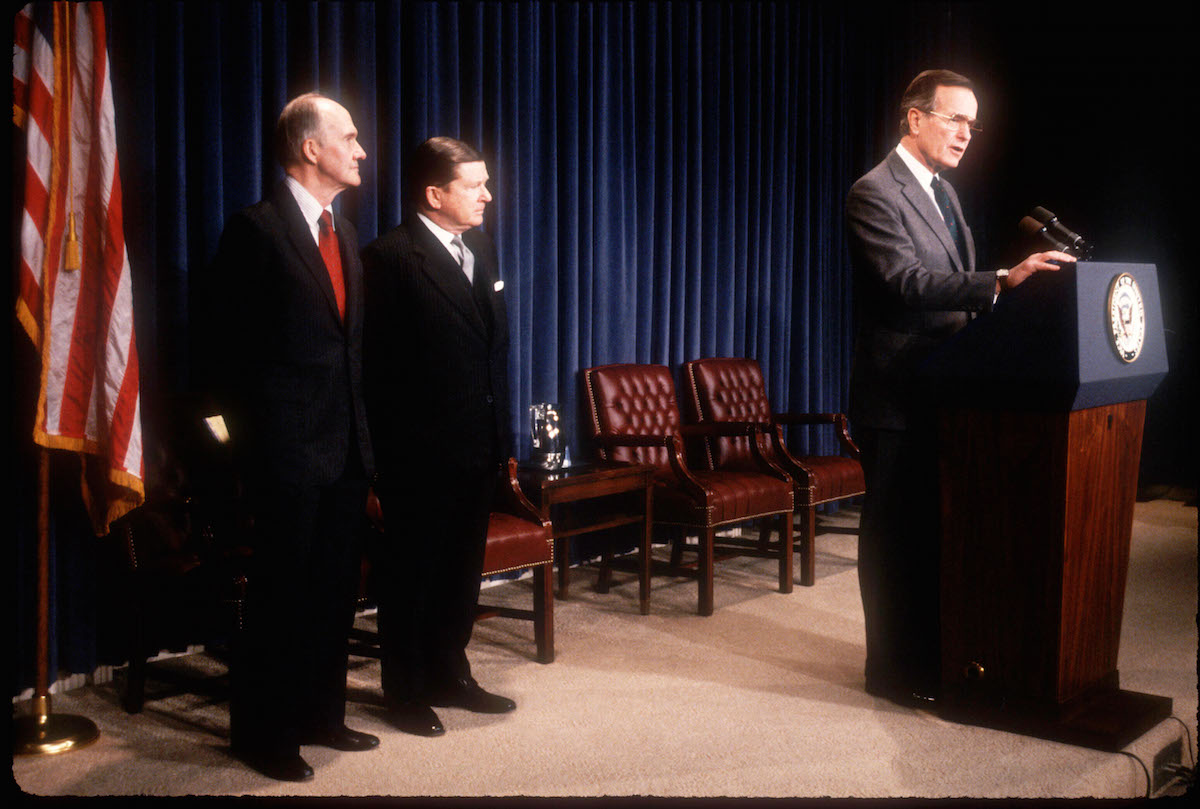
Being a member of the President’s cabinet is an important job: in their roles as the leaders of key executive-branch agencies, the 15 department heads who work with the Vice President to advise the President can end up driving vital policies. So it makes sense that cabinet nominees must first go through tough questioning from the Senate, which ultimately decides whether or not they get the job.
President Trump’s opponents got a hint of hope this week that the process may trip up some of his nominees, as two Republican Senators announced they would not support the candidacy of Betsy DeVos for Secretary of Education.
But, despite the fact that hearings can often consist of hours of rapid-fire and intense questioning, the President usually gets his way when it comes to his cabinet appointees—and that will likely be the case for DeVos too. In fact, there have only been nine nominees in the history of the presidential cabinet who have been denied confirmation by the Senate, and only one of those rejections was in recent history.
In 1989, when U.S. Senator John Tower was denied the job of Secretary of Defense under George H.W. Bush, that was the first time such a rejection had taken place in 30 years. And, nearly 30 years later, it still remains the most recent.
So what did Tower do to merit such a rare reaction?
Tower, a Texas Republican—the first Republican to represent the state in the Senate after Reconstruction—began his term in the Senate in 1961. During his nearly two decades in office, his notable moments included opposition to the Civil Rights Act and Voting Rights Act in the mid-1960s, and later serving as chairman for Senate Armed Services Committee. Tower lent his support to conservatives from Barry Goldwater to Richard Nixon, whose Key Issues Committee he served on. He ended his Senate career in 1985. But, during his long career, he began to develop a reputation in Washington.
By the time George H.W. Bush officially nominated him for Secretary of Defense in 1988, the FBI had already begun investigating Tower, the LA Times reported in 1989. Specifically, the agency was looking into concerns regarding conflicts of interest Tower had within the department of defense, and allegations that he was an alcoholic and “womanizer.”
These issues arose during Tower’s confirmation hearings, as fellow Republicans and Democrats alike raised concerns about their former colleague’s drinking problem and accused him of having affairs. Predictably, Tower denied that he had a drinking problem, testifying, “I am a man of some discipline.” But two members of the Senate came forward with new allegations to the contrary, weakening Tower’s favorability.
The FBI’s investigation looked into 69 allegations against Tower, but didn’t go into any salacious details. However, based on information given by interviewees, the agency determined that Tower drank excessively in the 1970s, but that he’d made efforts to reduce his alcohol consumption starting in 1983. The report didn’t reveal any illegal activity, but investigators determined “the investigation did confirm a prior pattern of alcohol abuse, as well as the Senator’s continuing sporadic use of alcohol, with indications that he had greatly reduced his consumption levels during 1983-1989.”
As for claims that Tower was a womanizer, many media reports from the time indicate that Tower’s sex life was an open secret, but only conservative activist Paul Weyrich testified in Senate hearings about the claims. Weyrich told the Senate Armed Services Committee: “Over the course of many years, I have encountered the nominee in a condition—lack of sobriety—as well as with women to whom he was not married.”
But things would continue to worsen for Tower.
The Senate Armed Services Committee chairman at the time, Sam Nunn, a Democrat from Georgia, delayed the vote on Tower’s confirmation twice, while the FBI continued its investigation. By this time, it was already early February of 1989, and the Bureau uncovered information that Tower had received financial support for his Senate campaign from the defense industry. Further, Tower had been paid over $1 million in two years from advising seven different defense contractors, calling his impartiality into question.
Nunn—who had initially stated at the start of the confirmation hearing that Tower was “well qualified” and likely to be confirmed—warned President Bush that he was worried about Tower as a nominee.
Ultimately, after five weeks of testimony, Tower lost the vote, which had been delayed all the way to February 21—more than two months after Tower was nominated.
The final tally came to 53 votes against and 47 in favor of his confirmation. Soon after Tower was denied the position, Bush nominated Dick Cheney for the job, and the then-House Whip was swiftly voted in. Cheney would go on to serve as Vice President under George W. Bush.
Bush evidently still wanted Tower around, however, and gave him a position within the administration that did not require a confirmation vote from the Senate, as chairman of the Foreign Intelligence Advisory Board, where he served from July of 1990 to his death in an airplane crash in 1991.
Since Tower’s confirmation vote, the Senate has continued to take nominees to task during confirmation hearings—but ultimately even controversial nominees have either withdrawn from the running or managed to secure the votes needed to achieve confirmation. Only the next few days will tell if Tower will remain the latest nominee to fall short of the Senate’s standards.
More Must-Reads From TIME
- The 100 Most Influential People of 2024
- The Revolution of Yulia Navalnaya
- 6 Compliments That Land Every Time
- What's the Deal With the Bitcoin Halving?
- If You're Dating Right Now , You're Brave: Column
- The AI That Could Heal a Divided Internet
- Fallout Is a Brilliant Model for the Future of Video Game Adaptations
- Want Weekly Recs on What to Watch, Read, and More? Sign Up for Worth Your Time
Contact us at letters@time.com